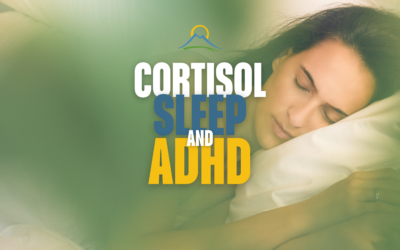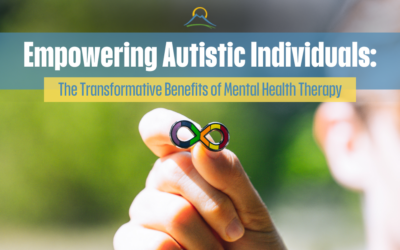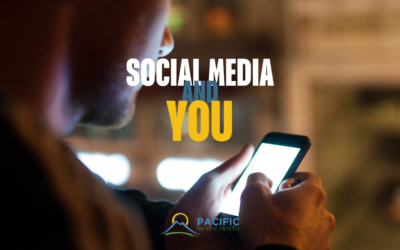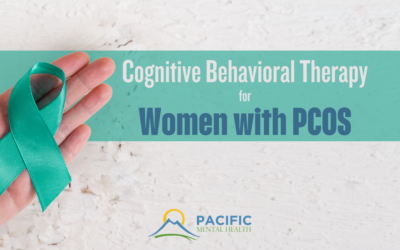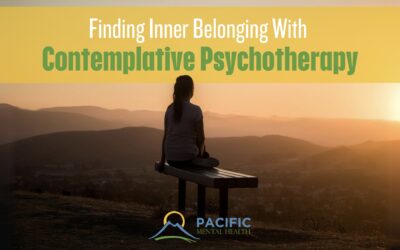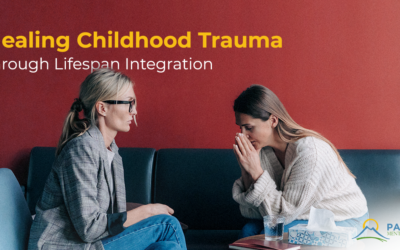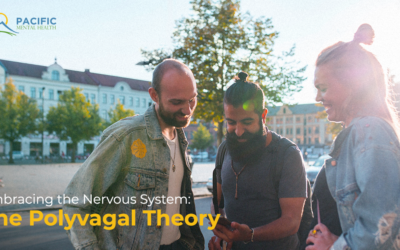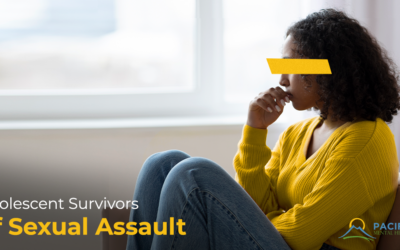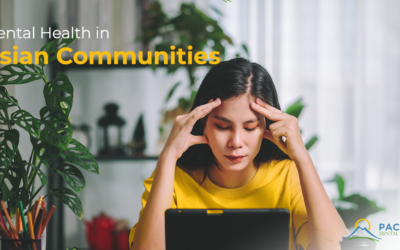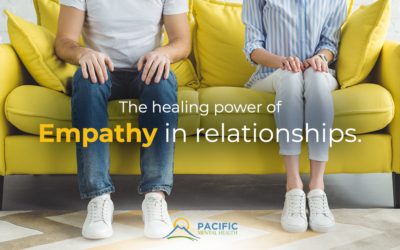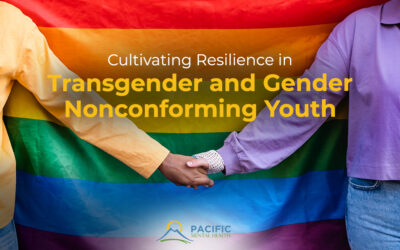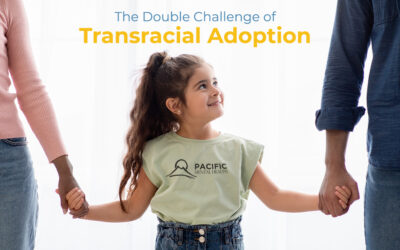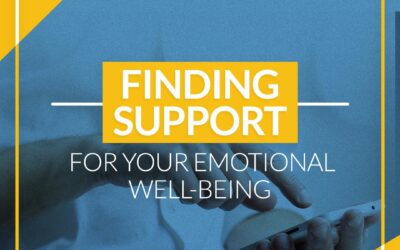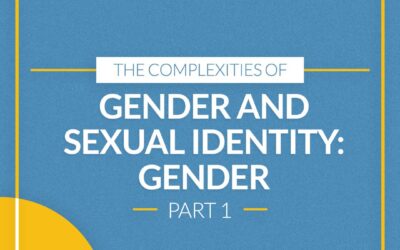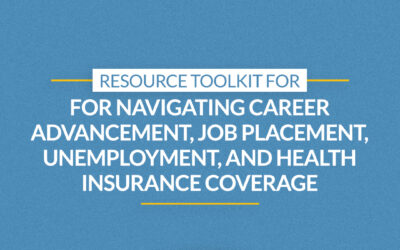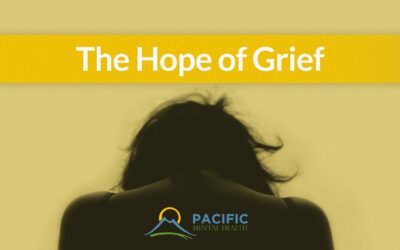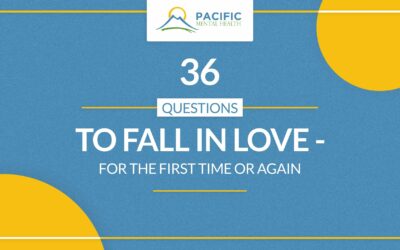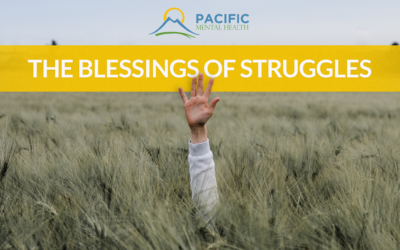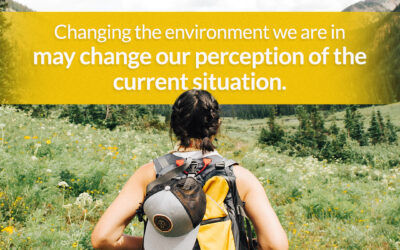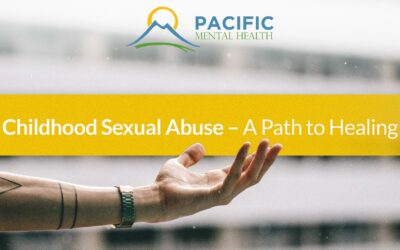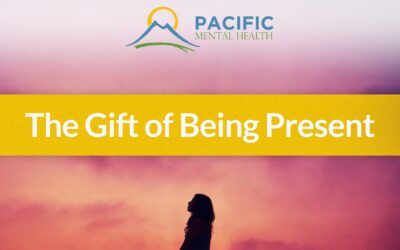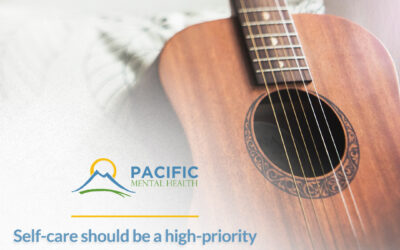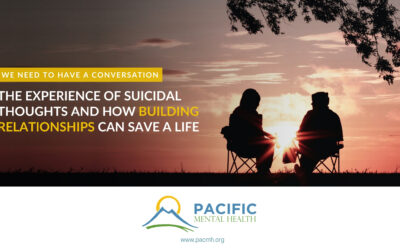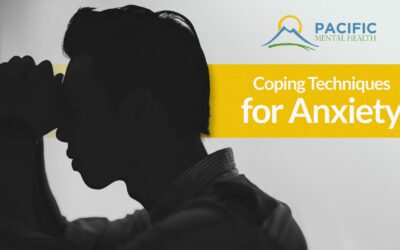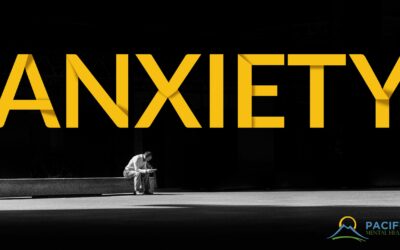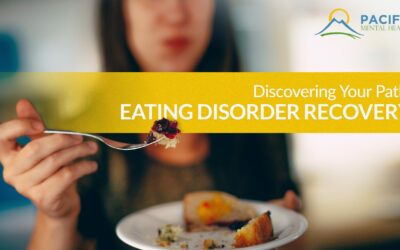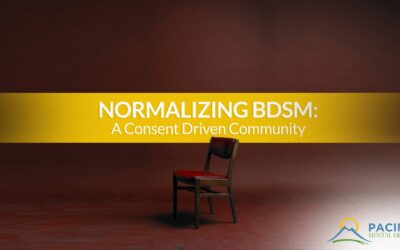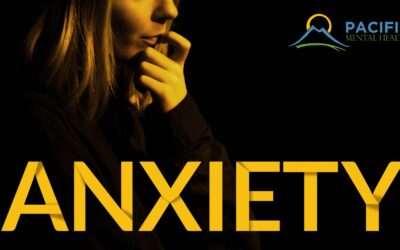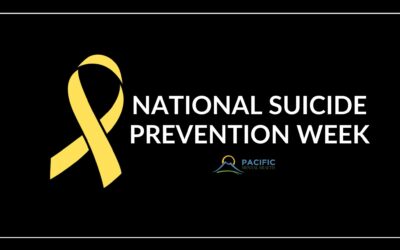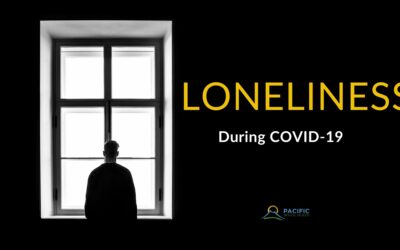Do you have ADHD and struggle getting out of...
Our Blog
Read articles about current mental health topics from our team of professionals.
Empowering Autistic Individuals
The Transformative Benefits of Mental Health...
Avoid Burnout, Set Boundaries
Burnout is a common experience that many of us...
Human Nature
Connecting with Nature Improves Well-Being To be...
Social Media and You
If you use social media, it is important to...
Polyvagal Theory and Nervous System Regulation
Our autonomic nervous system is the heart of our...
Cognitive Behavioral Therapy for Women with PCOS
PCOS is the most common endocrine disorder among...
Finding Inner Belonging with Contemplative Psychotherapy
For some, life can be full of extraordinary...
Healing the Mother Wound
Few relationships have as profound and enduring...
The Mystery Behind Dreams
The purpose and meaning of dreams have been one...
Nature Fix
Accessible Healing through the Natural...
Sustainable Mindfulness for Life
Mindfulness skills adapted from ancient...
Conflict As A Catalyst For Growth
Conflict rarely feels good. Most of us avoid it...
Fostering Secure Attachment in Couples and Families
There are solid reasons we hear about the...
The Mind-Body Connection: Stress
Skyrocketing prices, Covid-19 effects, Russia’s...
Healing Childhood Trauma through Lifespan Integration
During childhood, a child’s mind develops in...
The Efficacy of Expressive Arts Therapy (EAT) for Survivors of Trauma
There is a funny little acronym in the therapy...
Embracing the Nervous System
Have you ever wondered what feelings are and...
CBT for Adolescent Survivors of Sexual Assault
In the United States, 1 in 9 girls and 1 in 53...
Mental Health in Asian Communities
When thinking about mental health, a community...
On Pain Repurposed
There was a time when I believed the beautiful...
The Healing Power of Empathy in Relationships
Learning how to have empathy for your partner or...
Finding a Size-Inclusive Therapist
It’s no secret that bias against folks with...
Self-Esteem and Why It Matters
Self-esteem is, in short, how the mind evaluates...
Cultivating Resilience in Transgender and Gender Nonconforming Youth
Transgender and gender nonconforming (TGNC)...
The Double Challenge of Transracial Adoption
Transracial adoptees face an intersectional...
Climate change and Our Emotional Health
Here is a new topic gaining attention in...
Identifying Emotional Abuse
Emotional abuse can occur in any relationship,...
The Complexities of Gender and Sexual Identity: Part 2 – Sexual Attraction
With the increasing understanding of gender and attraction spectrums, begin to be mindful of people and wonder about the possibilities of their being that goes past the surface.
Finding support for your emotional well-being
If you are struggling to cope during the COVID-19 pandemic, talking to a trained professional counselor or therapist is a great tool. In addition, there are many free and confidential crisis resources available in Washington State.
The Complexities of Gender and Sexual Identity: Part 1 Gender
Definitions of gender identity terminology can be complicated. This article provides tools to learn, understand distinctions, and provide more inclusive language for others.
Washington Resources for Career Advancement, Job Placement, Unemployment, and Health Insurance Coverage
Although not exhaustive, the below list offers resources for a variety of employment related needs in Washington State.
Treatment Barriers for Obsessive Compulsive Disorder Services Across Varying Ethnic Groups
While lifetime prevalence rates for...
How do I identify trustworthy mental health articles online?
How do I identify trustworthy mental health articles online? Look for credible sources and citations, and discuss topics with professionals.
Learning to Let Go
We can refocus on what gives us energy, and what gives our life meaning to build a life and learn to let go.
How to Identify Spiritual Abuse
Unlike common practices in cults, there is a much more pervasive and subtle kind of spiritual abuse that is much harder to recognize as it occurs in mainstream organizations. It can make it challenging when learning how to identify spiritual abuse.
The Connection Between Nature and our Mental Health
We can experience awe while seeing incredible natural scenes and sublime aspects of nature. Research has shown that people react to the wilderness with experiences such as feelings of fear, fragility, and respect.
The Hope of Grief
We have many creative ways of managing and navigating grief, and how we do so is largely dependent on what is culturally acceptable.
Self-Care with our Inner Child
For a long time, I did not want to accept that I could be affected by how I grew up or what experiences I had as a child. I refused to acknowledge that perhaps some of how I engaged myself and the world around me was tied to my past. For me, the past was the past… until I noticed it was showing up in the present. Then I found that I had a choice: I could choose to try to ignore it and stick to the patterns that were no longer serving me well in the present or I could notice, listen, care for myself, and listen some more. I have chosen the latter. Self-care with our inner child can create healing.
Goal Setting and Achieving
creating goals and achieving them doesn’t have to be a stressful or disappointing experience. Achievement can come with imagination, honesty, community, and resilience.
Imposter Syndrome
What is Imposter Syndrome? It is the idea you believe your success is due to luck, not because of your expertise. Typically, people with such a syndrome fear others will eventually find out they have been faking.
Body Connection
he word embodiment grabs attention as of lately. It’s certainly a buzzword but it points to something that every person is connected to: the idea that we all have a body that we live in and experience everything through and with. But how many of us are actually aware and curious enough of this fact to be in relationship with our body? Are we connected to our bodies and listening to them enough to take care of them well?
The Language of Trauma
Trauma may impair our ability to communicate effectively, but these coping mechanisms are their own kind of communication, and speak to a desire to be seen and understood in the darkest places.
Perfectionism
Young people especially, put pressure on themselves to be perfect. This may look like striving to look perfect, to perform perfectly at work or school, or to find a perfect partner and have a perfect relationship. What exactly is perfectionism? Perfectionism can be hard to define because the line between high achievement and perfectionism is blurred
How to Grieve
Grief springs forth from numerous sources. It evokes a range of emotions from debilitating sadness, shock, anger, regret, and guilt, to deep gratitude and even joy and happiness. As we reflect on a year of Covid, it can be overwhelming to contemplate the varied packages in which loss has presented itself. It can be difficult to know how to grieve.
Evolving our self-care
We need to look at evolving our self-care. But what does that mean in practice, when we can no longer do many of the things that used to fill our proverbial buckets in the past? How do we carve time out for self-care when others depend on our attention more than ever? How have our needs for self-care changed now that we live and work in the same spaces?
36 Questions to Fall in Love
How do you fall in love with someone? I always assumed that love is complicated and depending on a lot of different internal and external factors. In a 1997 study, American psychologists Arthur and Elaine Aron came up with a questionnaire of 36 intimate questions that help develop a close bond faster between strangers. These questions can come in handy during a first date or even for couples looking for ways to reconnect. You can use these questions to strengthen your partner’s bond or increase your intimacy with someone else. What would be a better time than to try this on a Valentine’s date?
Different Forms of Therapy
This article will discuss three commonly used types of therapy: EMDR therapy, psychodynamic therapy, and cognitive behavioral therapy. These forms of therapy can be used to treat depression, anxiety, PTSD, substance abuse, self-harm, suicidality, anger, as well as many other types of mental health issues.
Blessings and Struggles
Everyone faces trials and struggles, some more severe than others. Even currently, we are all living in the midst of a pandemic, and as a result are experiencing various degrees of trauma and loss. I also know that some have found unexpected blessings in such a dark and uncertain time.
Friendships Explained
What is friendship? Why do we connect with someone in a split second, while feeling like we do not want to be close with another person right away? How many friends do we need to be happy? Humans are social beings: we need other humans to feel fulfilled. People who really see, understand, and make us feel like we belong. This is friendship explained.
Terror, nature, and relief
“If I die here, no one will find me, at least...
Surviving the Cuffing Season While Single
Surviving cuffing season as a single person can be challenging. Cuffing season is described as the period covering the coldest season of the year starting in October
Stay Sane with Exercising
Exercise can help you handle challenges in life better, which is exactly what we need to stay sane in a world of ambiguity and uncertainties. Besides all the side effects such as growing muscles, burning calories, and strengthening your heart and lungs, exercise helps to get your brain in top condition!
What Covid-19 has taught me about Authenticity
I was talking to a friend recently who shared...
The Power of Effective Self-Talk
I have a confession. I used to view self-talk as...
Childhood Sexual Abuse – A path to healing
‘You can recognize survivors of abuse by their...
Seasonal Affective Disorder
Seasonal affective disorder affects our levels of serotonin, which is a brain chemical that affects our moods. The reduced amount of daylight that occurs around the winter season can cause a drop in serotonin levels. SAD can also affect the balance of melatonin levels in our bodies, which can disrupt our mood and sleep patterns.
Making Time for Self-Care during the COVID-19 Pandemic
Due to the COVID-19 pandemic, there are many...
The Gift of Being Present
Being present is no miracle phenomenon that fixes everything once it occurs. Perhaps, it has potential to bring much groundedness and peace practicing over time. We can offer ourselves and others the gift of being present.
Self-Care: #1 Priority
Self-care comes in many forms depending on the...
Attachment Style as a Tool for Relational Growth
Have you ever wondered why you may be reacting or connecting to a person differently than a friend or sibling? There are four attachment styles we may intuitively lean toward: secure attachment, avoidant attachment, ambivalent attachment, and disorganized attachment.
Self-Care: A Basic Necessity
The truth is, we can not offer what we do not have. Self-care is not a luxury, but a crucial and necessary part of physiological, relational, and psychological flourishing.
Grief and Loss in Times of COVID-19
We all experience loss eventually. It can be especially difficult when we experience he grief and loss of a loved one. The past year especially has been a year of grief on various levels. Physically staying away from loved ones, losing loved ones, or not being able to attend a funeral because of restrictions has made our grief more complicated. Grief can be overwhelming, and sometimes it becomes unclear how to continue living with that pain. Everyone deals with grief and loss in their ways, and some might block off their emotions.
Building Relationships Can Save a Life
As a community, we need to work toward becoming comfortable with having conversations about suicide. Social myths tell us that talking about someone’s suicidal thoughts will push them toward completing their death. However, often a person’s thoughts of suicide decrease when there is a safe and containing conversation; when a loved one actively listens and empathizes.
Coping with Anxiety: Grounding Techniques for everyday use
Anxiety is one of the most pervasive mental...
Anxiety
I’ve learned, the first step in addressing anxiety, is to acknowledge its presence without scrutiny.
Managing Holiday Expectations
Take a breath and recognize what is realistic and what may be overwhelming to you, and not try to overexert yourself to appease people. Set realistic holiday expectations for yourself, in what you can do and what you may not be able to do this holiday season, and create a plan to not exhaust all of your
Friendship and the Seattle Freeze
The term Seattle Freeze refers to a widely held belief that it is especially difficult to make new friends in Seattle, Washington, particularly for transplants from other cities
Transgender Day of Remembrance
On November 20th, please take a moment to join a community vigil, honoring the unnecessary violent deaths of 33 #TGNC individuals this year, as well as find a way to year-around honor and offer a greater quality of life for those courageous and resilient TGNC human beings. To all those identifying as transgender and gender non-conforming: you are strong, courageous, and if you are struggling please do not be afraid to find trustworthy people, including therapists, who can fight on your behalf.
Coping with Life Transitions
For many, life transitions are scary. As change sits foreign and uncertain, many people prefer a routine, as it allows them to feel comfortable in their day to day experiences, and change rattles that monotony. Transition may make them fearful and/or anxious, both
Discovering Your Path: Eating Disorder Recovery
Becoming aware of our relationships with our bodies and journeying towards a healthier relationship with them can be difficult, but never hopeless. There are a few components of recovery that can
Redefining Expectations and Success
Rather than trying to live up to other people’s expectations, ask yourself, what does success look like for you? Look inward and place your focus on what brings you fulfillment and makes you feel alive. We are built with an inner guide, which is sometimes referred to as heart, intuition, or gut instinct, but are often trained to disregard this guide in favor of listening to others who “know better”.
Authenticity
Being true to oneself is not simply an individual choice, but includes how we interact with others. When we are authentic, seen, and still chosen and loved, our relationships thrive, as do we in our capacity to give and receive love.
Normalizing BDSM
Thankfully, in recent years, the BDSM community has been increasingly normalized through research that contrasts with the historical misconceptions of this population. Research now suggests that the foundational components of BDSM culture emphasize informed consent and mutual satisfaction
Anxiety
As of 2013, one in nine people worldwide has had an anxiety disorder in the past year. Individuals with anxiety disorders are excessively fearful, anxious, or avoidant of perceived threats in the environment
Redefining Expectations
When we let go of our expectations and redefine them according to our newly acknowledged needs and desires, then we can finally accept and love ourselves and find fulfillment in the unexpected joys of life.
5 Stages of Job Loss Grief
The loss of a job can be an emotional roller...
Achieve happiness through Wu Wei
The ancient Taoist philosophical concept Wu Wei challenges the idea that happiness is something we can pursue. Through inaction, long-lasting happiness comes to us because we do things we simply enjoy, not for the pursuit of happiness.
Are you thinking about suicide?
Offering someone in distress the opportunity to talk about their suicidal feelings may actually reduce the likelihood of them acting on these particular feelings
National Suicide Prevention Week
Resources to support discussions of suicide prevention and to help connect people with suicidal ideation to appropriate treatment services
Loneliness During Covid-19
During this pandemic nearly everyone is at risk for experiencing loneliness, however, there are some people particularly vulnerable.
